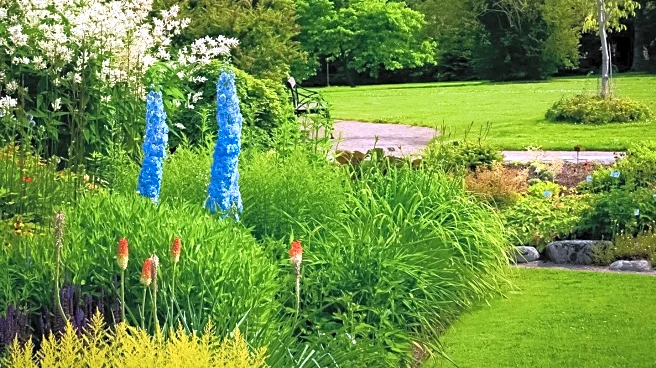What's Happening?
The Berkshire Botanical Garden is hosting an ecological plant conference featuring Abra Lee, a cultural historian specializing in the African-American landscape. Lee, who is the director of horticulture at Atlanta's Oakland Cemetery, brings a unique perspective
by intertwining cultural history with horticultural practices. Her keynote speech will explore the historical connection of African-Americans to the land, drawing on narratives from the enslaved to figures like Harlem Renaissance poet Anne Spencer. Lee emphasizes the importance of understanding the cultural ecology and practical approaches to gardening, highlighting how observation and experimentation have informed successful plant growth practices.
Why It's Important?
Abra Lee's participation in the conference underscores the significance of integrating cultural history into horticultural practices. By examining the African-American connection to the land, Lee provides a broader understanding of ecological practices that are both culturally and historically informed. This approach can enrich the field of horticulture by acknowledging the contributions and experiences of marginalized communities. It also promotes a more inclusive narrative within the gardening community, potentially influencing public policy and educational programs related to landscape management and cultural heritage preservation.
What's Next?
Lee's keynote speech at the conference is expected to inspire attendees to consider the cultural dimensions of horticulture in their own practices. The event may lead to increased collaboration between cultural historians and horticulturists, fostering a more holistic approach to landscape management. Additionally, it could encourage further research into the historical narratives of other cultural groups and their contributions to ecological practices, potentially influencing future conferences and educational initiatives.
Beyond the Headlines
The integration of cultural history into horticulture highlights ethical considerations regarding land use and preservation. It challenges traditional narratives and encourages a reevaluation of historical landscapes, promoting a more inclusive understanding of ecological practices. This approach may lead to long-term shifts in how communities engage with their environment, fostering a deeper appreciation for the cultural significance of landscapes.
















